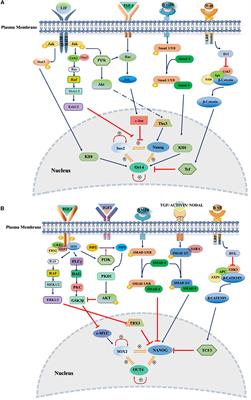CORRECTION
Published on 02 Oct 2020
Corrigendum: An FGFR/AKT/SOX2 Signaling Axis Controls Pancreatic Cancer Stemness

doi 10.3389/fcell.2020.594589
- 1,482 views
- 2 citations
26k
Total downloads
126k
Total views and downloads
You will be redirected to our submission process.
CORRECTION
Published on 02 Oct 2020

EDITORIAL
Published on 26 Aug 2020
ORIGINAL RESEARCH
Published on 22 Jul 2020

ORIGINAL RESEARCH
Published on 07 May 2020

ORIGINAL RESEARCH
Published on 24 Mar 2020

MINI REVIEW
Published on 20 Feb 2020

MINI REVIEW
Published on 18 Feb 2020

ORIGINAL RESEARCH
Published on 12 Dec 2019

MINI REVIEW
Published on 10 Dec 2019

